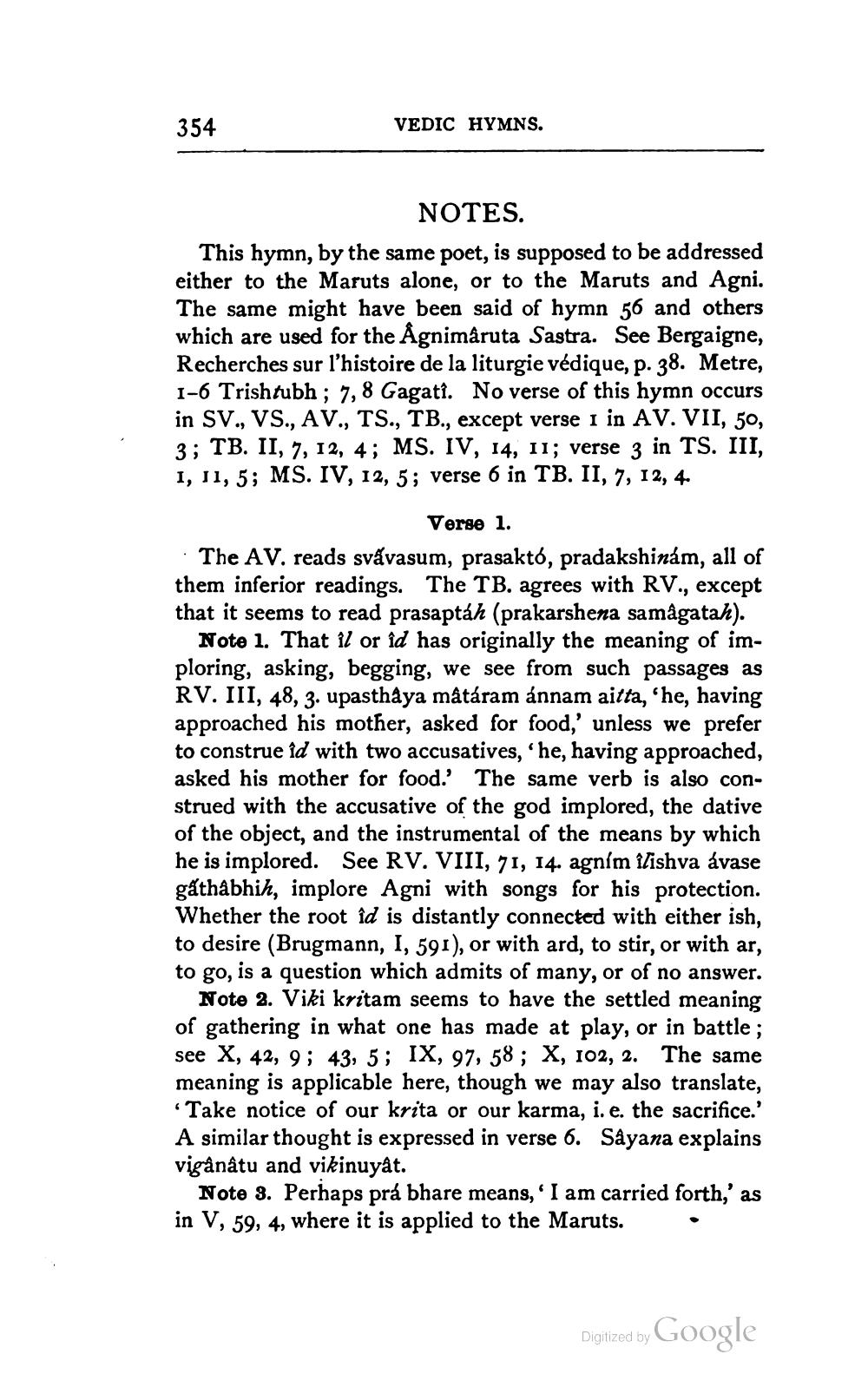________________
354
VEDIC HYMNS.
NOTES. This hymn, by the same poet, is supposed to be addressed either to the Maruts alone, or to the Maruts and Agni. The same might have been said of hymn 56 and others which are used for the Agnimâruta Sastra. See Bergaigne, Recherches sur l'histoire de la liturgie védique, p. 38. Metre, 1-6 Trishtubh ; 7, 8 Gagati. No verse of this hymn occurs in SV., VS., AV., TS., TB., except verse 1 in AV. VII, 50, 3 ; TB. II, 7, 12, 4; MS. IV, 14, 11; verse 3 in TS. III, 1, 11, 5; MS. IV, 12, 5; verse 6 in TB. II, 7, 12, 4.
Verse 1. · The AV. reads svávasum, prasaktó, pradakshinám, all of them inferior readings. The TB, agrees with RV., except that it seems to read prasaptáh (prakarshena samagatah).
Note 1. That il or îd has originally the meaning of imploring, asking, begging, we see from such passages as RV. III, 48, 3. upasthầya mâtáram ánnam aitta, 'he, having approached his mother, asked for food,' unless we prefer to construe id with two accusatives, 'he, having approached, asked his mother for food.' The same verb is also construed with the accusative of the god implored, the dative of the object, and the instrumental of the means by which he is implored. See RV. VIII, 71, 14. agním ilishva ávase gáthâbhih, implore Agni with songs for his protection. Whether the root îd is distantly connected with either ish, to desire (Brugmann, I, 591), or with ard, to stir, or with ar, to go, is a question which admits of many, or of no answer.
Note 2. Viki kritam seems to have the settled meaning of gathering in what one has made at play, or in battle ; see X, 42, 9; 43, 5; IX, 97, 58; X, 102, 2. The same meaning is applicable here, though we may also translate, "Take notice of our krita or our karma, i.e. the sacrifice.' A similar thought is expressed in verse 6. Sayana explains vigânâtu and vikinuyat.
Note 3. Perhaps prá bhare means,' I am carried forth,' as in V, 59, 4, where it is applied to the Maruts.
Digitized by
Digitized by Google




